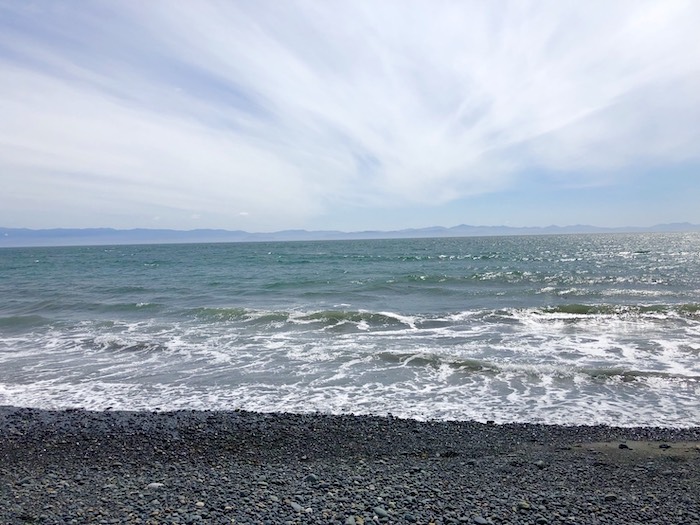第八回 現場力
彼は、自らの視座を「現場」に置く意味を「強み・差別化」へと将来活用していくことになる。
毎週の漁業研究において、彼は現場というものの重要性・変動性・非効率性に気が付き、現場での意味合いをより深く考えるようになった。
大学卒業後の進路に関しても、そういった意味合いで「現場主義であり個の能力を高めるような企業」への就職を決めた。
“築地魚市場㈱”は水産物卸売業を行う老舗企業であり、築地市場にてセリ業務を行う会社だ。2009年4月入社、彼は鮮魚部高級魚グループに配属された。
80年前の建物だが、彼には全てが新しく見えた。
1日の水産物の取り扱い20億円、450魚種類にも及ぶ水産物の数々。
その中で高級魚グループはタイ・ヒラメ・サワラ等、特に白身系の上物(じょうものと読む)を取り扱い、絶えず20-30魚種を流通させていた。
また、その顧客はグループの名前に恥じない老舗寿司屋や名門ホテルであり、「築地の目利き」達の最前線であった。
朝0時半、まだ肌寒い春先の市場、ピカピカの長靴を履き、はじめての現場に入った。
築地では毎朝セリによる販売が行われ、価格が需要供給のバランスにより形成される。
「よし、疋田・・じゃあこの天ダイを良い順に並べろ」、出社初日の彼に上司より指示が出た。
「そもそも天ダイって何だ?あー天然物のタイの事か!でもタイを良い順に並べる?同じような色・大きさの物じゃないか。えっと・・どこに差があるんだ」どういう基準かも分からず、何となくの感覚で並べててみた。
「〇〇さん、出来上がりました!」それを見た上司は眉を顰めた。
どうやら納得のいくものはないらしい・・何も分からない彼にもそれだけは伝わってきた。
上司は言葉を発さず、無言で並び替えを始めた。
一瞬にして魚を判断し、順番を入れ替える。
その目利きに迷いは感じられなかった。
そして、上司は一言も喋ることなく、サッと別の仕事に移っていった。
「何が違うんだろう。どこを見てるんだろう。」彼の疑問に上司はただひたすら、行動のみでしか教えようとしなかった。
「俺の魚を見ろ」そういう強い雰囲気だけが伝わってきていた。
Episode 8. The field capabilities.
15 December. 2019
I will use my point of view on the GEMBA (“the place where the production happens”) as my strength and differentiation in the future.
I realized the importance of the GEMBA, but also its volatility and inefficiency, and started to think more deeply about why the GEMBA was the way it was.
As far as my path after graduation, I decided to work at a company that has a hands-on approach to increase my market value as an individual.
“TSUKIJI UO ICHIBA CO.,LTD” is a long-standing seafood wholesale business company and it holds a fish auction at the Tsukiji fish market.
I entered it in April 2009, and I was assigned to the high-grade fresh fish department.
The building was built 80 years ago, but it all looked new to me.
They handle US$18 million of marine products each day, they trade over 450 kinds of seafood.
Among these, my department handled the high-grade white fish like Snapper, Flounder and Spanish mackerel, etc.
We constantly distributed 20-30 kinds of fish.
In addition, our customers were long-established sushi restaurants and luxury hotels that lived up to the name of the high-grade fresh fish department.
We were at the forefront of “fish connoisseurs at Tsukiji.”
At 0 am, it was still chilly spring and I was at the Tsukiji fish market.
I was wearing brand new boots and entered the site for the first time.
The auction is held every morning and the selling price is determined by supply-demand balance.
“Okay, Hikita. Well, rearrange these TENDAI (wild snappers) in descending order of goodness.” My boss gave me this instruction on my first day of work.
I felt like “What does TENDAI mean? Oh! I got it! It might be wild snapper, but I don’t understand what ‘in descending order of goodness’ means? These snappers look to me to be all the same colour and size. What is the difference?” I didn’t understand the basis, but I just rearranged them by my hunch. I said “Boss, I did it!”.
He looked at it and frowned.
It seemed like my first work didn’t make him satisfied.
I could understand that; even I didn’t know what the basis for rearranging was.
He didn’t say anything and just started to change the fish order.
He judged fish in a moment and changed the order quickly.
I didn’t feel any hesitation from his judging.
However, the boss quickly moved to another work without speaking a word.
“What is the difference? What did the boss look at?”. My boss tried to answer my questions only by his work.
“Look at my fish”; that strong atmosphere was the only feeling that I could get from him.
